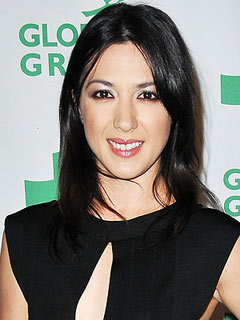TEHRAN — When Syria’s agricultural minister, Subhi Ahmad al-Abdullah, arrived in the Iranian capital for a visit last week, everybody involved stuck to a well-worn script.
There were welcoming ceremonies, handshakes in front of cameras and tête-à-têtes on rococo chairs. Stern-faced Iranian and Syrian officials discussed “expanding economic and agricultural ties” and signed a contract for the joint production of a vaccine for foot-and-mouth disease.
The unrest in Syria did not go unmentioned in the meetings, which were widely reported by Iranian state media. Iran’s vice president, Mohammad-Reza Rahimi, said Iran was confident of victory for the Syrian government forces, who, he said, were engaged in “sporadic fights with terrorists sent by regional countries.”
The upbeat ceremonies surrounding Mr. Abdullah’s visit illustrate how Iranian leaders perceive the bloody conflict that has engulfed their main ally in the Arabic world. While former Iranian diplomats, academics and analysts increasingly warn that President Bashar al-Assad’s government is on the brink of collapse, the country’s highest leaders insist the conflict is manageable and ultimately will be resolved to Iran’s advantage.
“We say that Bashar al-Assad, or at least his government, is the safest bet for stability and security in Syria,” said Amir Mohebbian, a political analyst whose views are sometimes published on the Web site of Iran’s supreme leader, Ayatollah Ali Khamenei. “If the foreign mercenaries take over, there will be a blood bath in Syria.”
Endless news broadcasts by Iran’s state television offer an ideological narrative in which Saudi Arabia and Qatar are doing the bidding of the United States and Israel, helping to arm foreign “terrorists” and sending them into Syria to punish it for having opposed Israel. War crimes committed by Syrian forces go unreported.
“Clearly, there is no real alternative for al-Assad and his government in Syria,” Mr. Mohebbian said. “They have agreed to reforms; there will be a multiparty system in Syria. So foreign countries should stop arming terrorists and let the Syrian people decide their own future.”
Some former diplomats, analysts and academics disagree with the blind support of Syria’s government. But they have little, if any, influence on Iran’s policy makers, who are mostly rigid ideologues.
“The Syrian Army is on the brink of complete collapse, and the downfall of al-Assad is inevitable,” Ebrahim Yazdi, a former foreign minister who is a member of the opposition, wrote Saturday in the newspaper Etemaad, which is critical of Iran’s government. “Syria’s leaders respond to reforms with bloody crackdowns. Their future is very bleak.”
Mashallah Shamsolvaezin, a Middle East analyst who has been imprisoned for his involvement in Iran’s opposition movement, echoed that view. “In reality, Syria will be in turmoil for years to come,” he said. “There will be nothing left of our anti-Israel front.”
Iran has organized two conferences for what it calls the “genuine” Syrian opposition, pushing for modest political changes, followed by nationwide presidential elections in 2014, as the only solution to stop the fighting.
Off the record, Iranian officials sometimes hint that Mr. Assad, as a symbol, could be sacrificed in Iran’s future vision for the country. But they insist that his political and security apparatus should remain in power, continuing to lead Syria as a regional spear against Iran’s archnemesis, Israel.
“We are seeking a peaceful solution in which the Syrian government implements reforms,” said Hamidreza Taraghi, a politician who is close to Iran’s leaders. “But whatever the cost, we want to keep Syria in the group of resistance against Israel.”
Mr. Taraghi, who recently led an Iranian delegation to North Korea and met with the country’s leader, Kim Jong-un, said that Iran was willing to do “whatever it takes” to keep Syria as an ally. He said the Syrian government had not yet asked Iran for military help, but if that happened Iran would be compelled by its treaty with Syria to step in.











